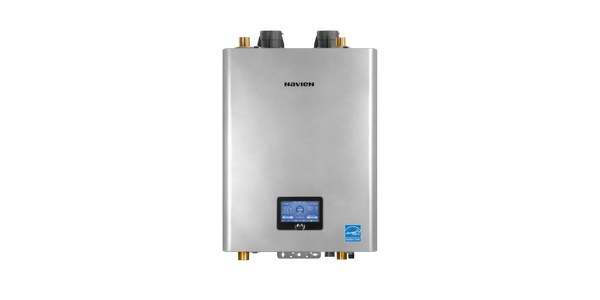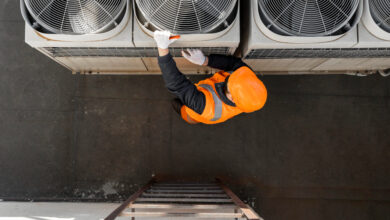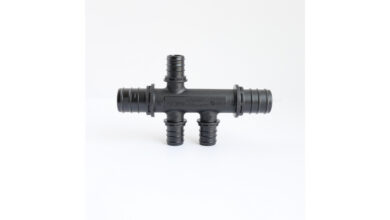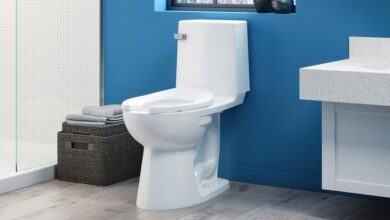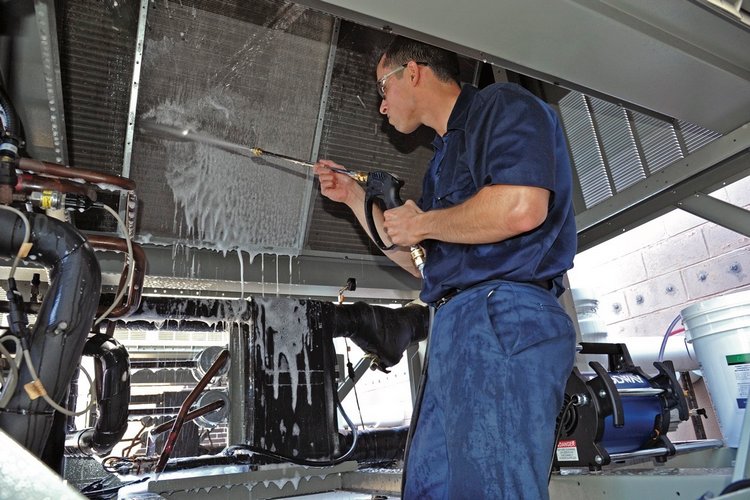
HVAC systems quietly work day and night, ensuring the comfort and well-being of occupants as it regulates temperature, humidity and indoor air quality.
But what if this everyday guardian of comfort is not running at its full potential?
Imagine a system struggling to keep up with the rising summertime temperatures, forcing occupants to endure the discomfort that can impact productivity, concentration and overall well-being. A system that delivers higher energy bills, unexpected breakdowns and costly emergency repairs. Now, envision a different scenario — a meticulously maintained HVAC system. Optimized and working seamlessly, providing occupants with ideal comfort levels and contributing to a more efficient and sustainable building.
The following checklist can help facility managers and contractors, alike cover all maintenance bases and move one step closer to maintaining a safe, efficient, cost-effective HVAC system.
Commercial HVAC maintenance checklist
First things first: prioritize safety. Ensure technicians are properly trained and equipped with the necessary personal protective equipment. Remember to follow the lockout/tagout procedures before beginning any maintenance work.
Use your senses. A visual inspection is an effective way to predict future maintenance needs. Observe and take note of any signs of excessive wear, rust, dirt buildup and other issues. Also, listen. Grinding, squealing, or other odd noises generally means something is failing or wearing. Finally, smell. “Dirty sock” and other odors clearly indicate odor-causing bacterial growth.
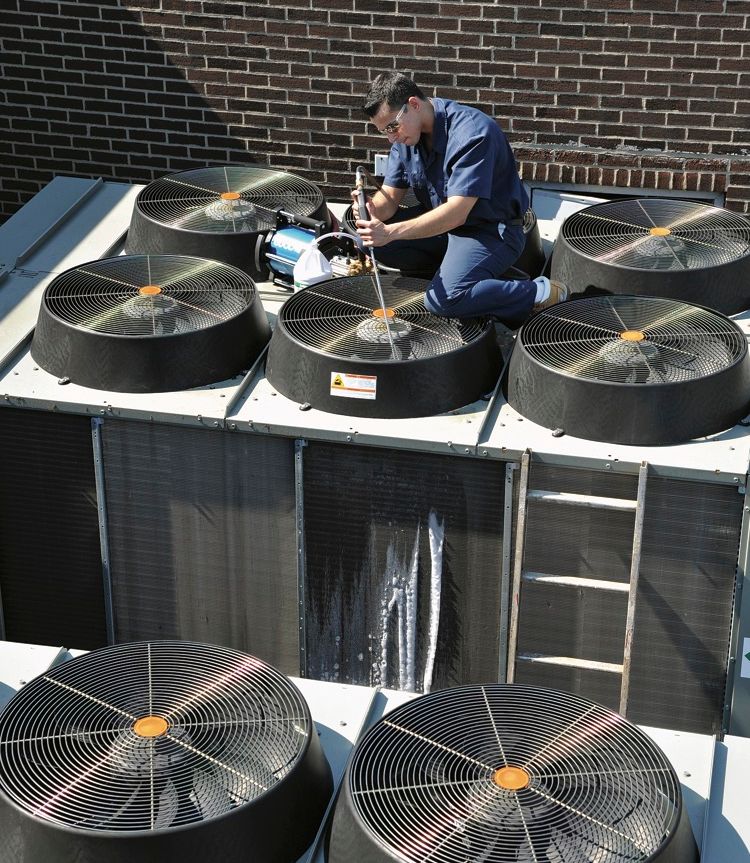
Log it. Keep an operating log to record system information. Monitor datapoints like temperature, amperage, head pressures, airflow and other points, which can help identify potential problems. Operating logs are also helpful for tracking trends, measuring improvements and comparing data.
Don’t forget the filters. Check the condition of filters and replace them regularly. Worn and dirty filters can cause an AC system to work harder, resulting in higher energy bills and a reduced lifespan. Use filters that match a unit’s specifications, as incorrect filters can lead to pressure issues and poor indoor air quality.
Check your belts. Check the condition of the belts and pulleys of a system’s fans and pumps. If the manufacturer recommends lubrication, be sure to do so.
Clean coils rule. Clean condenser and evaporator coils regularly. Dirty coils decrease efficiency, causing an AC to run longer, ultimately leading to a shorter lifespan. They also are the No. 1 cause of poor IAQ due to microbial growth. Expert tip: Consider using a system designed explicitly for coil cleaning, as pressure washers can potentially damage delicate coil fins and lead to costly repairs.
Check drainage: Maintain the health of HVAC systems by regularly cleaning and checking the drainage lines, especially the condensate lines. Blockages can cause severe property damage.
Expert tip: Consider cleaning and treating the lines with a biocide to reduce the chances of biological growth.
Check the system’s electrical connections. It is essential to ensure connections are within tolerance and specifications.
Check that all thermostats and controls are functioning correctly.
The frequency of system maintenance will depend on various factors, including the size, the age of a system and how often it is used. The general rule of thumb recommends that cleaning and maintenance are done at least twice per year, typically in the spring and fall.
In the demanding environment of commercial building management, it’s easy to overlook the importance of regular HVAC maintenance. Neglecting this essential upkeep leads to increased costs, along with diminished performance, efficiency and lifespan of an HVAC system. The cost of skipping regular maintenance will far outweigh the investment needed to conduct routine inspections, cleaning and maintenance.
Implementing a proactive approach to regular maintenance optimizes system performance and safeguards a customer’s bottom line, along with the comfort of building occupants.
Mark Rothenhausen is senior director of sales operations at Goodway Technologies.


